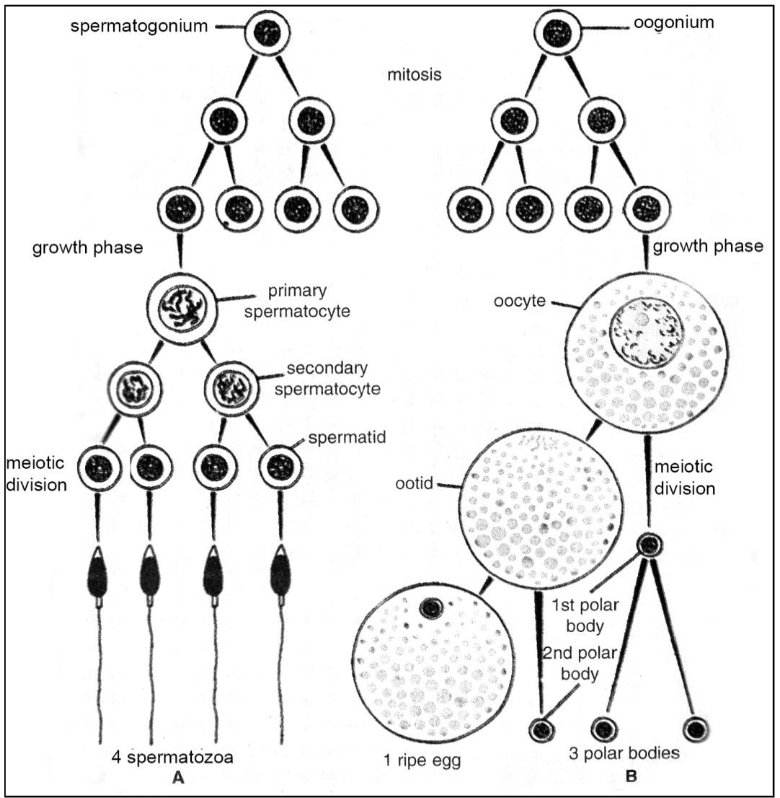Spermatogenesis
- It takes place in testes.
- Growth phase is not significant and the primary spermatocyte becomes double the volume of spermatogonium.
- Previtellogenesis and vitellogenesis stages are absent during the growth phase.
- Both maturation divisions occur in close succession and the divisions are equal.
- A single spermatocyte produces four haploid spermatids at the end of maturation division.
- No polar bodies are formed.
- Spermatid undergoes changes and differentiates into sperms by a process called spermiogenesis.
- The end product of spermatogenesis is the formation of four functional sperms, which are all haploid.
Oogenesis
- It takes place in ovary.
- Growth phase is significant and the volume of the primary oocyte increased several times the volume of oogonium.
- Growth phase is marked by Previtellogenesis and vitellogenesis stages during which yolk accumulate.
- In most vertebrates the 2 maturation division is complete only after fertilization and the division are quite unequal.
- A single oocyte produces only a single haploid egg at the end of maturation division.
- Three polar bodies are formed.
- There is no morphological differentiation of ootid and process similar to spermiogenesis is absent.
- The end product of oogenesis is the formation of a single functional egg or ovum which is haploid.

